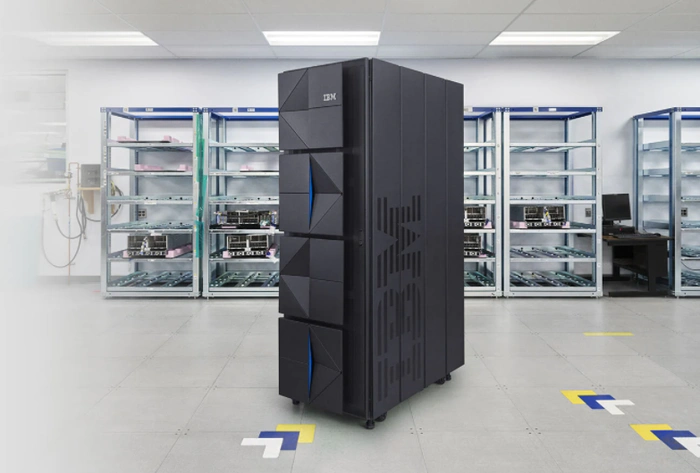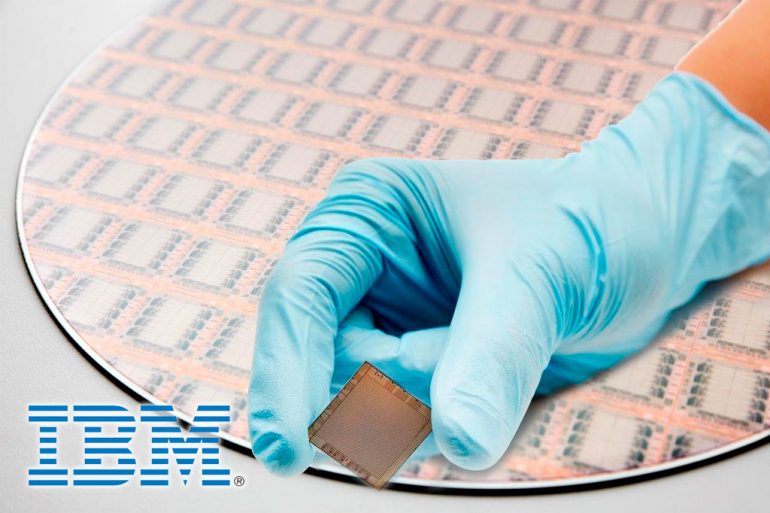
IBM, one of the world's leading technology companies, introduced a new solution for large-scale transaction processing and fraud detection. This is IBM z16.
This commitment is based on artificial intelligence used in real time, which also includes the industry's first quantum security system, taking advantage of advances in computing.
“IBM is the benchmark standard for highly secure transaction processing. Now, with IBM z16 innovations, our customers can increase decision speed with inference right where their mission-critical data resides,” said Ric Lewis, senior vice president of IBM Systems, adding: “This opens up huge opportunities to change the game in their respective industries, so they can position themselves to deliver better customer experiences and more powerful business outcomes.”
With this system, IBM says it guarantees to analyze transactions in real time at scale, for mission-critical loads such as healthcare, credit cards or financial translation of transactions. Its involvement in security would be immense, as it would protect against future threats that seek to circumvent current encryption technologies.
“Any industry could benefit from this system with artificial intelligence included. But, obviously there are some more susceptible companies that are given such as regulations, cyber attacks, frauds, and all those that need real-time analysis. They are mainly the banking, finance, health, insurance and manufacturing sectors,” Jorge Vergara, director of technology at IBM in Colombia, told Infobae.
According to the company, thanks to this processor, the IBM z16 can handle up to 300 billion inference operations per day with millisecond latency.
For customers, this means reducing the time and energy needed to deal with fraudulent credit card transactions. For merchants and card issuers, this will allow a reduction in revenue loss, as consumers will avoid the frustration associated with fake discounts where they can exchange cards for other future transactions.

As already mentioned earlier, one of the most important capabilities of this z16 is that it integrates the IBM Telum processor. An 8-core chip designed to add accelerated AI and deep learning inference to enterprise workloads. This is the company's first processor to offer a chip with built-in acceleration for AI inference during transactions.
This processor, according to IBM, allows you to harness the power of AI processors for specific workloads, such as fraud detection, loan processing, or knowledge of business history. It has 22.5 billion transistors in an area of 530 mm square and is designed in multiple layers. It also has 256 MB of L3 cache.
IBM z16, powered by the Telum processor, can identify fraud at the time of the transaction, preventing consumers from having to worry about confirmation emails or text messages. Not to mention map errors and similar problems, which are also a big inconvenience for users.

The IBM z16 combines AI inference through IBM Telum, with the secure and reliable processing of high-volume transactions that the company is known for. For the first time, banks can analyze fraud in large-scale transactions: IBM z16 can handle 300 billion inference requests per day with just milliseconds of latency.
Jorge Vergara explains several scenarios where IBM's new artificial intelligence can solve different problems that arise:
IBM Z16 is based on technologies such as secret encryption or ubiquitous encryption, protecting customer data against threats that can break the cryptographic security system developed by volume death.
In this way, this unit is the first quantum security system for customers, supporting passwords based on lattice-based cryptography to protect data and system threat today and in a future.

It has secure boot to prevent malware injections and allows your customers to strengthen their cyber resilience and retain control of their system. The Crypto Express hardware security module will offer classic cryptographic and quantum technology to address your cases.
In short, both this startup and quantum cryptography can better protect the customer from quantum computing threats such as data theft, subsequent attacks when decrypting such data or loss of intellectual property.
KEEP READING
Últimas Noticias
Debanhi Escobar: they secured the motel where she was found lifeless in a cistern
Members of the Specialized Prosecutor's Office in Nuevo León secured the Nueva Castilla Motel as part of the investigations into the case

The oldest person in the world died at the age of 119
Kane Tanaka lived in Japan. She was born six months earlier than George Orwell, the same year that the Wright brothers first flew, and Marie Curie became the first woman to win a Nobel Prize

Macabre find in CDMX: they left a body bagged and tied in a taxi
The body was left in the back seats of the car. It was covered with black bags and tied with industrial tape
The eagles of America will face Manchester City in a duel of legends. Here are the details
The top Mexican football champion will play a match with Pep Guardiola's squad in the Lone Star Cup

Why is it good to bring dogs out to know the world when they are puppies
A so-called protection against the spread of diseases threatens the integral development of dogs




